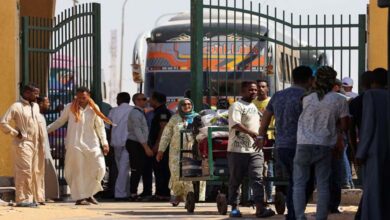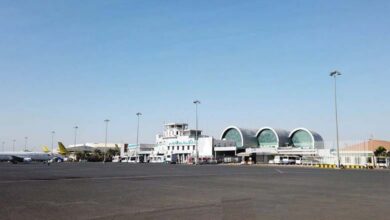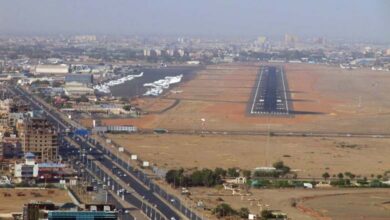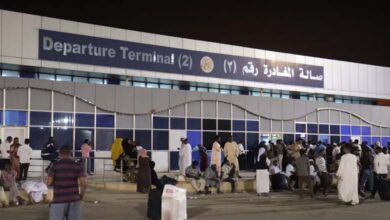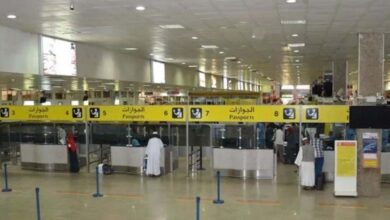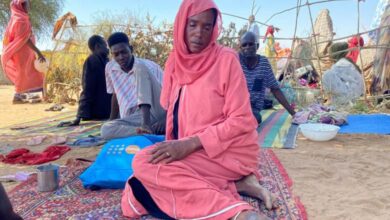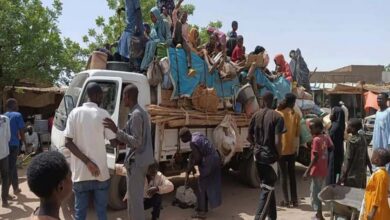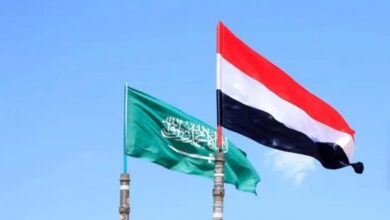Al-Burhan’s Delegation in a Closed Circle: Washington’s Silent Message to Sudan’s Leadership
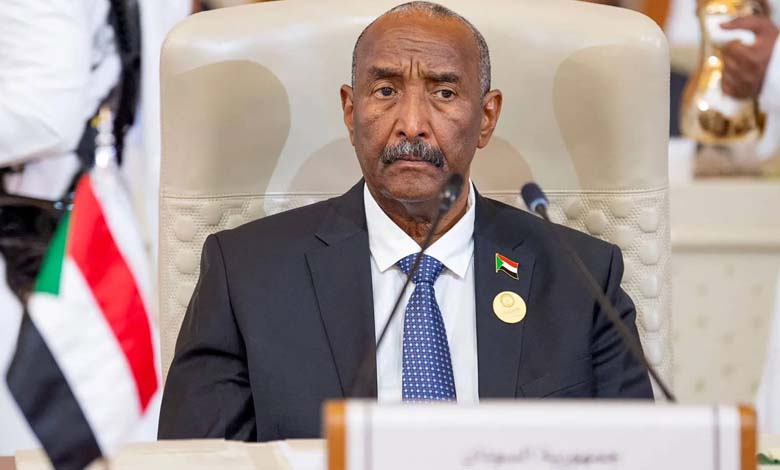
Although the United Nations General Assembly is the world’s largest diplomatic stage, bringing together heads of state each year, Sudan’s participation in its 80th session turned into a harsh experience that laid bare the isolation of the regime based in Port Sudan. When the U.S. State Department announced restrictions on the movement of Abdel Fattah al-Burhan’s delegation in New York, the decision was not merely a technical administrative measure but a deeply political signal. The message was clear: the international community does not view Sudan’s military leaders as legitimate or trustworthy partners, but rather as a suspicious leadership, besieged even within the halls of the United Nations.
-
Al-Burhan’s siege brings hunger and slow death
-
Soaring prices and epidemics: Al-Burhan’s corruption traps Sudan
What is striking is that this step was not framed as an overt punitive measure—such as economic sanctions or a travel ban—but implemented through a subtle protocol tool governed by U.S. foreign mission regulations. This method itself reflects a high level of diplomatic sophistication: it stripped the Sudanese delegation of the ability to move freely and prevented it from building informal contacts and side meetings, which are usually the most valuable outcomes of such gatherings. Sudan’s attendance was therefore purely formal, devoid of substance, as it lacked the diplomatic activity that usually happens on the sidelines.
The U.S. decision was not taken overnight. It followed lengthy internal discussions within diplomatic circles. Since the outbreak of war between the army and the Rapid Support Forces, Washington had tread carefully, avoiding explicit alignment with either side. However, reports by human rights organizations detailing systematic abuses in Darfur and North Kordofan played a decisive role in shifting the U.S. stance. Proposals for imposing personal sanctions on al-Burhan and his senior officers had been raised in Congress, but ultimately, a quieter yet more effective option prevailed: curbing the delegation’s ability to operate diplomatically during its time in New York.
-
The Muslim Brotherhood controls the war, while Al-Burhan is merely a façade… The Foundational ‘Sudan Alliance’ unveils the hidden realities
-
Al-Burhan Seeks to Contain Potential Crisis over Chemical Weapons Use
This punitive mechanism carried a dual character. Legally, it was rooted in the Foreign Missions Act, which authorizes the State Department to set movement limits for delegations. Politically, it was designed to prevent Sudanese officials from engaging in any diplomatic activity outside the formal UN framework. The outcome was a delegation stripped of authority, confined to symbolic participation in public sessions without real political weight—pushing Sudan to the margins of international interactions.
Al-Burhan’s absence from the head of the delegation deepened this sense of isolation. Rather than appearing before the world as a confident leader, he delegated the role to Prime Minister Kamel Idriss. While officially presented as a protocol decision, it in fact revealed a deep anxiety that his presence could turn into an indelible embarrassment. In diplomatic norms, a leader who cannot move freely in the host country is perceived as a weakened figure lacking legitimacy.
-
Al-Burhan Reshuffles Ministries by Force: A New Power Grab Threatens Sudan’s Peace Process
-
Al-Burhan Reshapes the Political Landscape: A Power Grab Undermines the Balance of the Juba Agreement
Behind the scenes, diplomatic sources revealed that Washington’s restrictions extended to strict monitoring of the delegation’s meetings, preventing any senior U.S. or international official from holding bilateral talks with them outside the UN premises. This isolation dealt a direct blow to Port Sudan’s attempts to present itself as a legitimate transitional authority. Instead of gaining informal dialogue channels, the delegation found itself fenced in by an invisible wall, unable to connect with key players.
Western media further reinforced this narrative. Major U.S. and European outlets reported the restrictions with a hint of irony, noting that the Sudanese delegation was confined to a small geographic zone it could not leave without prior authorization. Such coverage not only conveyed information but shaped a political story portraying the delegation as unfit to represent its country—a leadership living in isolation at home and abroad alike.
-
Al-Burhan’s Government Investigates Use of Chemical Weapons to Evade Responsibility
-
From Al-Bashir to Al-Burhan: The Muslim Brotherhood Continues to Wreck Sudan
Regional capitals also took note. Egypt, the UAE, and Saudi Arabia—states that have sought to balance their stances toward Sudan’s warring factions—interpreted the U.S. move as a signal that al-Burhan no longer enjoys international legitimacy. Even though these messages were not stated openly, in diplomatic language they implied that support for the army could be reassessed.
Domestically, the decision carried significant symbolic weight. Ordinary Sudanese, worn down by war and daily hardship, saw the restrictions as further evidence of their military leadership’s inability to command respect abroad. The irony was stark: al-Burhan’s official discourse centered on defending national sovereignty, yet his delegation in New York was unable to move beyond a 25-mile radius.
-
The Islamic Movement’s Retreat and al-Burhan’s Silence: Questions Surround the Political and Military Cover Behind the Strategic Strikes in Port Sudan
-
Precision Strikes Shake Islamist Camps in Port Sudan: Mass Escape and Suspicious Silence from al-Burhan
The timing of this action amplified its impact. The army, exhausted by a protracted war and mounting international accusations, was seeking to rebuild its image. The UN General Assembly could have provided a platform for reintegration into global diplomacy. Instead, Washington shut that window tightly, leaving the regime to confront its own isolation.
Ultimately, restricting al-Burhan’s delegation was not a technical measure but a carefully crafted political act. Washington did not need to issue a bold statement or announce new sanctions. Drawing a small geographic circle around the Sudanese delegation in Manhattan was enough to show the entire world that the military regime in Port Sudan is now trapped in total isolation—unable to move freely at home or abroad, and regarded by the international community as a power cut off from legitimacy.


